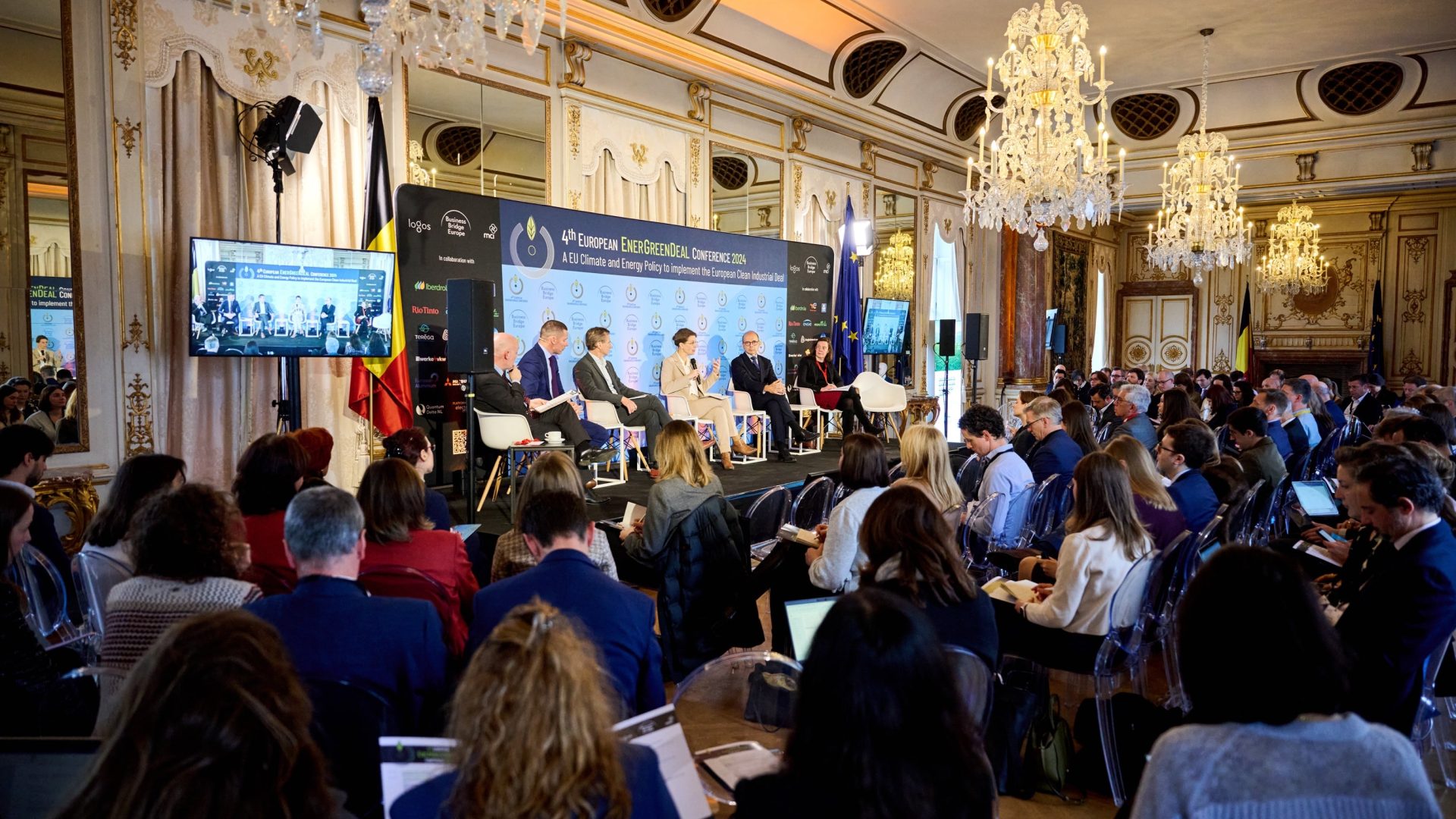
Launching the 5th European Energy and Industry Conference as momentum builds behind the Clean Industrial Deal
On 9 December 2025, the EnerGreenDeal Conference returns under the name of the European Energy and Industry Conference, at the Egmont Palace in Brussels.
This year’s edition arrives at a critical moment. One year after the new Commission took office, the Conference will explore key initiatives, especially those stemming from the Clean Industrial Deal.
As the early policies under the Deal start to take shape, now is the time for decision-makers and industry leaders to explore the right choices for lower energy prices, more jobs and thriving businesses.
The programme will include discussions on EU policy for affordable energy, industrial competitiveness and strategic autonomy. Initial topics in focus will include electrification, financing the energy transition, uptake of low-carbon products and trade.
Addressing today’s key issues
- Affordable and clean energy production and energy security
Europe’s energy future depends on rapidly scaling up renewable sources while ensuring that energy remains affordable for both industry and households. This transition must strike a careful balance between energy security, price stability, and environmental sustainability.
How can Europe scale up renewable energy while keeping prices competitive for industry and consumers? What role should conventional energy sources play in the future energy mix to ensure resilience and diversity?
- Industrial electrification
Electrification is at the heart of Europe’s industrial decarbonisation strategy, offering a pathway to cleaner production in sectors like steel, chemicals, and manufacturing. However, this shift places immense pressure on existing grid infrastructure and regulatory frameworks. To meet growing demand, Europe must modernise its energy systems and streamline permitting processes.
How can grid infrastructure and permitting processes keep pace with the accelerating demand for industrial electrification?
- Smart power grids
The future of energy lies in smart, interconnected systems capable of managing decentralised production and cross-border flows. As renewable energy sources proliferate, Europe must invest in digital technologies, storage solutions, and grid flexibility to ensure stability and efficiency.
What investments are needed to integrate decentralised and cross-border energy flows into a smart, resilient grid?
- Sustainable road transport
The decarbonisation of road transport is critical to achieving climate neutrality. Electric and hydrogen-powered vehicles are gaining traction, but their widespread adoption depends on supportive infrastructure, policy incentives, and technological readiness.
Should more flexibility be introduced and room for e-fuels? How can the upcoming green corporate fleets legislation accelerate road transport decarbonisation?
- Financing the energy transition
Achieving Europe’s climate goals requires unprecedented levels of investment. Mobilising both public and private capital is essential to fund clean technologies, infrastructure, and industrial transformation. EU financial instruments must be leveraged effectively to de-risk investments and drive innovation.
How can public and private capital be mobilised to support industrial decarbonisation? What role should EU instruments like the Industrial Decarbonisation Bank, the Innovation Fund play in financing the transition?
- Uptake of low-carbon products
Low-carbon products are key to building a sustainable economy. Yet, demand for these products is currently insufficient to drive investment and production in the EU. Policies such as lead markets, green public procurement and carbon labelling can help shift markets.
How can demand-side policies like green public procurement, sustainability requirements and product labelling drive market uptake of low-carbon products?
- An effective Carbon Border Adjustment Mechanism
CBAM is a cornerstone of the EU’s climate strategy, designed to prevent carbon leakage and ensure fair competition. Its implementation must balance environmental integrity with industrial competitiveness, while aligning with global trade rules.
How can CBAM be implemented fairly while supporting EU industry competitiveness? Should CBAM be extended to additional sectors?
- The Right Trade Approach for Competitive EU Industry
Trade policy must evolve to reflect Europe’s climate ambitions. Integrating carbon standards into trade agreements can help level the playing field and promote global decarbonisation. The challenge is to design a trade framework that supports both sustainability and industrial strength.
Should trade policy be used to protect emerging or transitioning industries? What role should carbon standards play in future trade agreements?
Join us
This conference is more than just a meeting; it is a space for decision makers to exchange ideas, forge partnerships, and discuss solutions that can help Europe reach its climate targets while also spurring sustainable competitiveness.
Be sure to come and be a part of the conversation.
Meet the leaders. Shape Europe’s future.
Background
Since 2014, the annual European Energy and Industry Conference has served as an independent and pro-European industry platform for in-depth and informal discussions on the challenges associated with reconciling Europe’s decarbonisation efforts with industrial ambition and competitiveness.
For more details, visit the official conference website here.